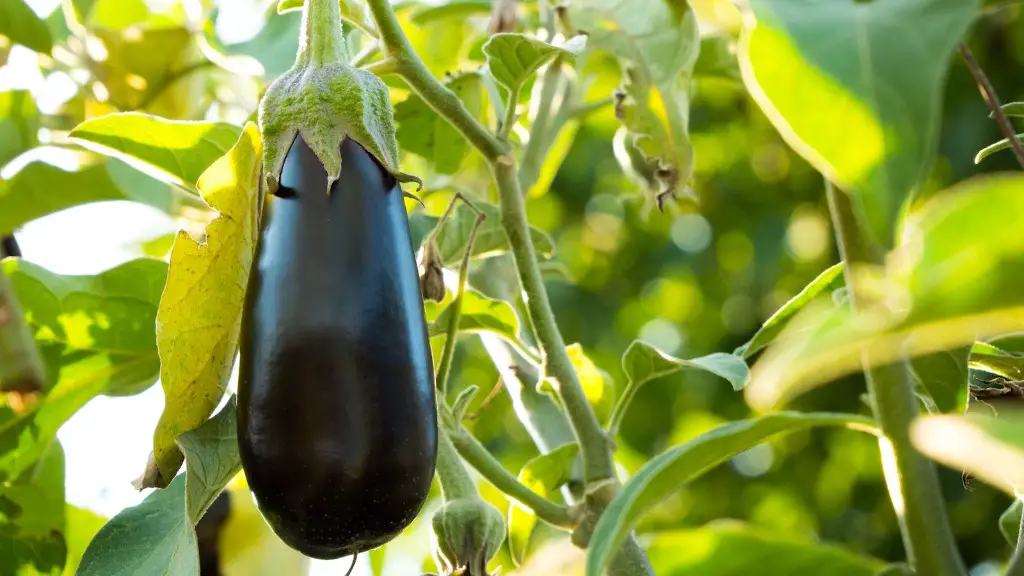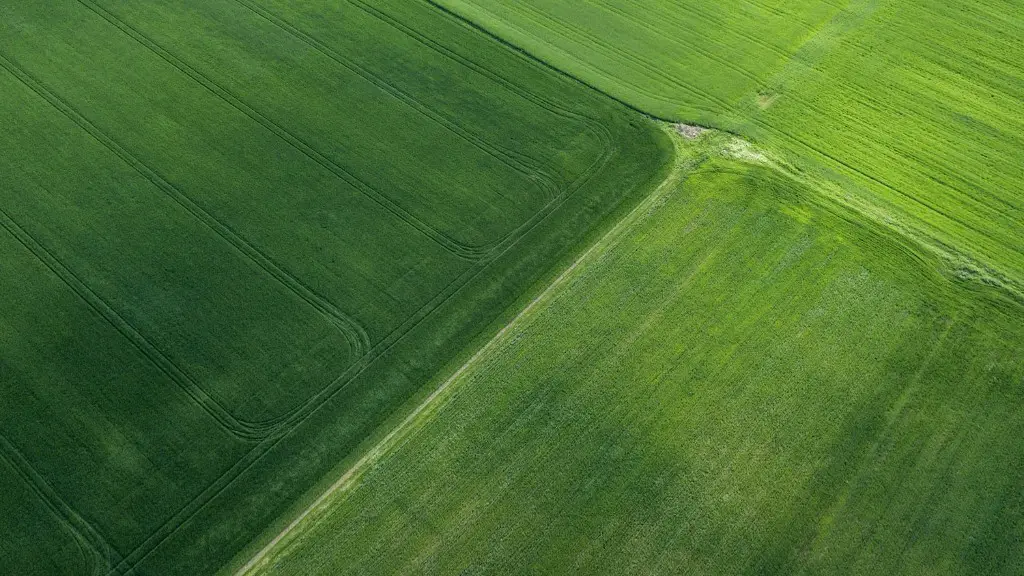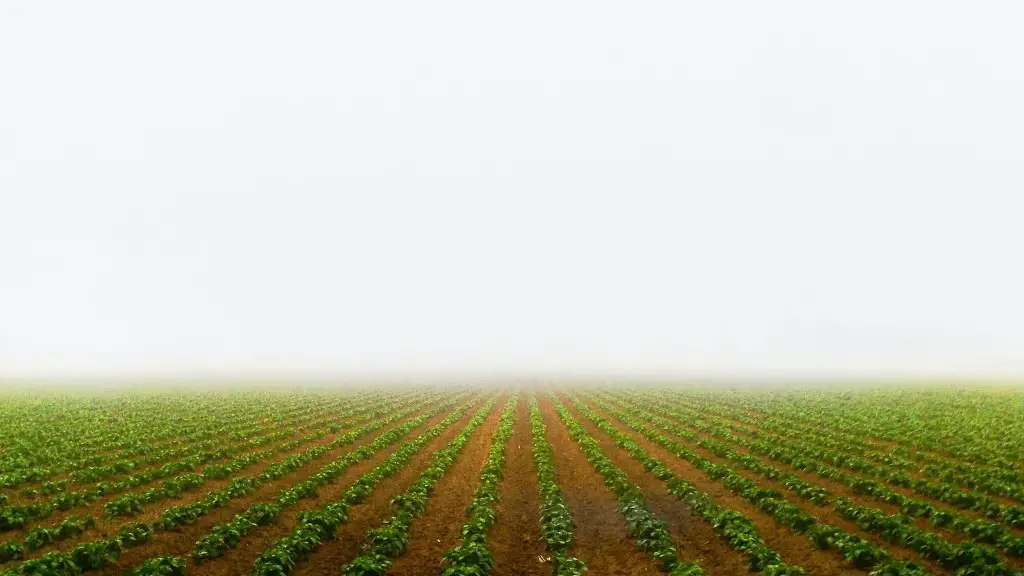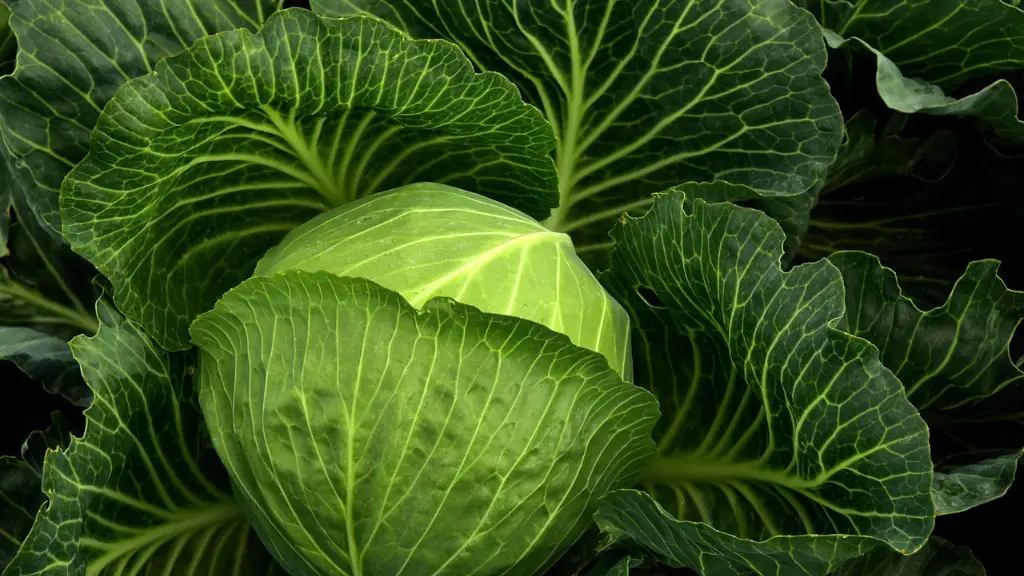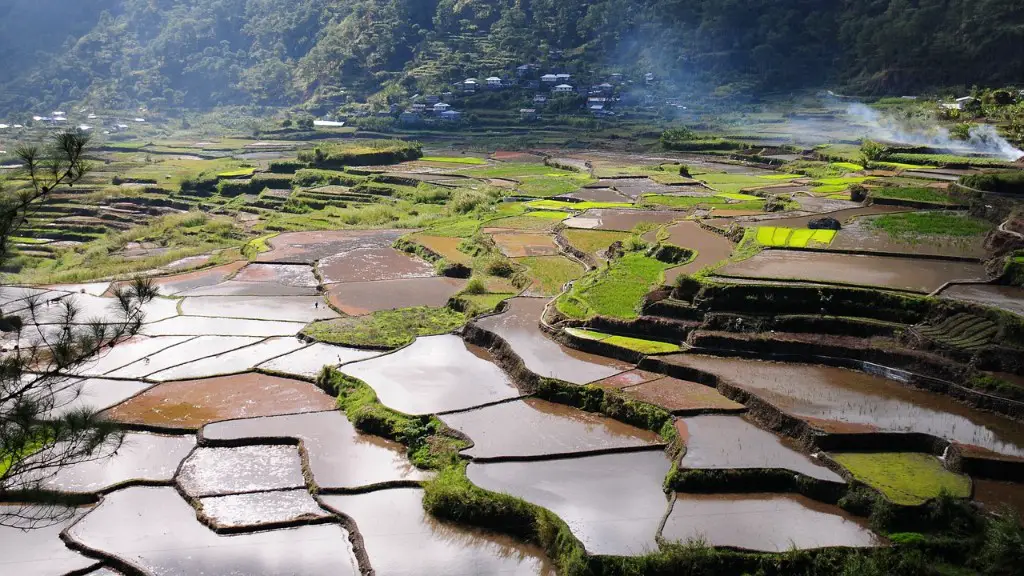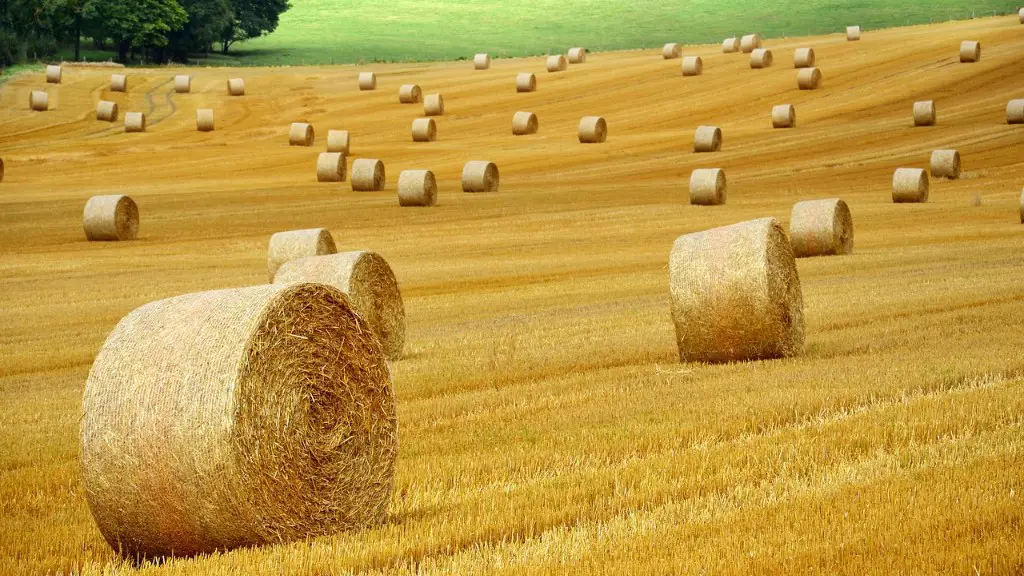Water is a vital component for all life on earth and is an increasingly scarce resource. Therefore, it is important for individuals and businesses to find ways to conserve water. One important way to do this is through water-efficient agriculture.
There are a number of ways to save water in agriculture. One of the most important is to choose crops that are drought-resistant or require less water to grow. Another way to save water is to reduce or eliminate irrigation by using mulch, cover crops, and other methods to retain moisture in the soil.
Water-efficient irrigation systems are also available that can help reduce water use in agriculture. These systems include drip irrigation, which delivers water directly to the roots of plants, and sprinkler irrigation, which uses less water than traditional methods.
By taking steps to save water, we can help protect this vital resource for future generations.
There are a number of ways to save water in agriculture. One way is to use drip irrigation, which delivers water directly to the roots of plants. This type of irrigation is more efficient than other methods, such as sprinklers, and can reduce water wastage by up to 60%. another way to save water in agriculture is to plant drought-tolerant crops. These crops need less water to grow and thrive, and can help farmers to save water during periods of drought. Finally, farmers can reduce water wastage by using conservation Tillage methods, such as no-till or minimum till. These methods help to reduce evaporation and prevent water from being lost to the atmosphere.
What are 10 ways to save water?
Water is an essential part of our daily lives, but it’s easy to take it for granted. With a little effort, we can all save water and help preserve this vital resource. Here are ten water-saving tips to get you started:
1. Switch to showers: A five-minute shower uses less water than a full bath.
2. Keep the sprinklers off: Water your garden by hand or with a drip irrigation system to avoid wasting water.
3. Turn off the tap: When brushing your teeth or shaving, turn the tap off while you’re not using it.
4. Fill up the washing up bowl: When washing dishes, fill up a bowl with water instead of letting the tap run.
5. Make sure your dishwasher is full! Dishwashers use less water when they’re full.
6. Use leftover cooking water: Water from boiling vegetables can be reused to water plants.
7. Fixing leaky taps is an easy fix for reducing your water footprint: A leaky tap can waste up to 30 litres of water per day.
8. Fit low flow aerators on your taps and showers: These can reduce water usage
Drip irrigation is a great way to save water and ensure that your plants are getting the water they need. By using a drip system, you can decrease evaporation by up to 80 percent and get the water directly to the roots, leading to better growth.
What are 4 sources of agricultural water
Agricultural water is vital for crops and livestock. There are many sources of water that can be used for agriculture, including surface water, groundwater, and rainwater. Each source has its own benefits and drawbacks, so it is important to choose the best source for your needs.
Filter strips are vegetated areas next to fields that help filter runoff and protect water quality. Riparian forest buffers are vegetated areas next to streams that help filter runoff, provide habitat, and protect water quality.
How do we stop wasting water?
Here are 25 ways that you can save water in your home:
1. Check your toilet for leaks
2. Stop using your toilet as an ashtray or wastebasket
3. Put a plastic bottle in your toilet tank
4. Take shorter showers
5. Install water-saving shower heads or flow restrictors
6. Take baths
7. Turn off the water while brushing your teeth
8. Turn off the water while shaving
9. Use a dishwasher instead of washing dishes by hand
10. only run the dishwasher when it is full
11. Use a washing machine instead of washing clothes by hand
12. Only run the washing machine when it is full
13. Scrape dishes instead of rinsing them before loading them in the dishwasher
14. Store drinking water in the fridge instead of running the tap until the water is cold
15. Collect rainwater to water plants
16. Use a broom instead of a hose to clean driveways and sidewalks
17. Turn the hose off while washing your car
18. Use a car wash that recycles water
19. Water your lawn and garden during the cooler hours of the day
20. Put mulch around your plants to help
There are many ways to conserve water. Here are a few tips:
-Never use your toilet as a waste basket
-Do not let the water run while shaving or brushing teeth
-Take short showers instead of tub baths. If you must use a tub, close the drain before turning on the water and fill the tub only half full.
By following these simple tips, you can help conserve water and save money on your water bill.
How can farmers reduce water pollution?
It is important for farmers to be conscious of the impact that their irrigation practices can have on water pollution. They can reduce NPS pollution by improving water use efficiency. One way to do this is by measuring actual crop needs and applying only the amount of water required. Another way to improve efficiency is to convert irrigation systems to higher efficiency equipment.
Drip irrigation is a irrigation method where water is slowly delivered to the roots of plants, either on the soil surface or directly to the roots, through a network of valves, pipes, emitters, and tubing. It is considered to be one of the most efficient irrigation methods as it conserves between 20-50% of the water you would otherwise use in irrigation. Additionally, it reduces negatives like runoff, surface evaporation and the potential for overwatering.
How do farmers deal with drought
There is a lot that farmers can do to adapt to drought risk and one of the most important things is to focus on increasing soil organic matter. This can be done through practices like no-till or reduced tillage, using cover crops, and rotated conservation crops. All of these help to keep the soil moist and reduce the amount of water that is lost through evaporation.
Water-intensive crops require a lot of water to grow and produce. These include rice, soybeans, wheat, sugarcane, cotton, alfalfa, and pasture. While these crops are vital to many industries and economies, they can put a strain on water resources.
Why is agriculture water important?
Water is critical for agricultural production and food security. Irrigated agriculture represents a significant proportion of total cultivated land and food production globally. Without access to water, crops will fail and food security will be at risk. Therefore, it is important to invest in water infrastructure and management to ensure a reliable and safe water supply for Agriculture.
Agricultural contaminants can seriously impair the quality of surface water and groundwater. Fertilizers and pesticides applied to the land can quickly run off or seep into local streams, rivers, and groundwater, causing serious pollution problems.
How do farmers solve water problems
Aquaponics is a combination of two different types of agriculture: aquaculture (the raising of fish) and hydroponics (the growing of plants in water without soil). This system can result in a reduction of water consumption by up to 90% when compared to traditional methods of agriculture.
Water is a critical natural resource, essential for life and livelihoods. Sustainable farming practices are those that protect and conserve water resources, while still being productive and efficient. Such practices help to ensure that water is available for future generations.
Water management on farms includes everything from irrigation and crop selection, to rainwater harvesting and water storage. By choosing the right crops for the season and using efficient irrigation systems, farmers can conserve water and minimize wastage. Rainwater harvesting is another way to make use of a natural resource, and can help to supplement irrigation during dry periods.
Sustainable farming practices help to protect our water resources and ensure their availability for future generations.
How can we protect water quality on farms?
Applying manure, slurry and fertiliser correctly can help protect water quality on farms. Introducing an extended buffer zone can also help to protect water quality. Locating water troughs away from waterways can help to reduce the risk of pollution. Implementing a nutrient management plan can also help to reduce the risk of pollution. Introducing mixed species and clover to your grass swards can also help to improve water quality.
We can reduce water pollution by disposing of toxic chemicals properly, shopping with water pollution in mind, not pouring fat and grease down the drain, using phosphate-free detergent and dish cleaner, checking our sump pump or cellar drain, and disposing of medical waste properly. We can also reduce water pollution by eating more organic food.
What are 30 ways to save water
1. Check for leaks: Check all plumbing fixtures and pipes in your home for leaks. Fix any leaks you find as soon as possible.
2. Measure your water flow: Keep track of how much water you use each day. This will help you identify any areas where you can reduce your water usage.
3. Check your toilet cistern for leaks: Put a tissue or piece of toilet paper in the cistern. If it becomes wet, there is a leak. Fix any leaks as soon as possible.
4. If you have a single-flush toilet, put a 15-litre plastic bottle filled with water in the cistern to reduce the amount of water you flush.
Water is a precious resource and it is important that we do our part to conserve it. Here are 50 ways that you can help to conserve water:
1. When watering plants, apply water only as fast as the soil can absorb it.
2. Use sprinklers that deliver big drops of water, close to the ground.
3. Use a water-conserving icemaker.
4. Teach children to turn off faucets tightly after each use.
5. More items…
Conclusion
There are a few ways to save water in agriculture. One way is to use irrigation methods that are more efficient, such as drip irrigation. Another way is to choose crop varieties that are more drought-resistant. And finally, farmers can implement management practices that help conserve water, such as crop rotation and
cover cropping.
Water is one of the most important resources for agriculture. During droughts, water shortages can severely damage crops and lead to food shortages. There are many ways to conserve water in agriculture, from irrigation methods to choosing drought-tolerant crops. By working to save water, we can help ensure a stable food supply for the future.
